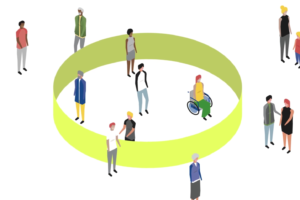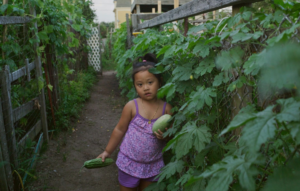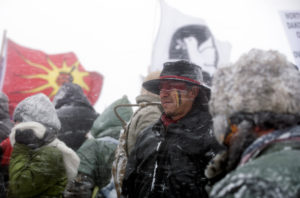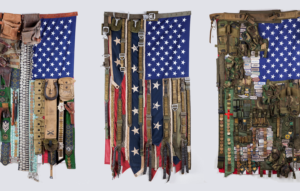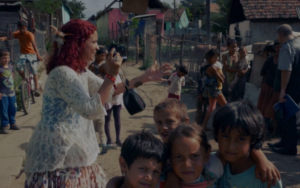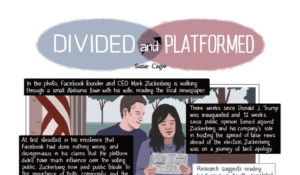Issue Two, Spring 2017
Contents
Editors’ Introduction
Much has happened in the months since we published the inaugural issue of Othering & Belonging. Donald Trump won an unexpected victory to succeed Barack Obama as US president just as a peace agreement ended Latin America’s longest conflict in Colombia. Brazilians and South Koreans impeached their presidents, while President Erdoğan of Turkey accelerated…
Articles
Belonging as a Cultural Right
The US Department of Arts and Culture (USDAC) may sound like a government agency, but unlike the National Endowment for the Arts, it can’t be eliminated with a pen stroke by the president. The USDAC is the nation’s only people-powered department—a grassroots action network inciting creativity and social imagination to shape a culture of empathy, equity,…
Equity as Common Cause: How a Sustainable Food System Network is Cultivating Commitment to Racial Justice
Marilyn Moore was working as executive director of an organization in Bridgeport, Connecticut, advocating for underserved women with breast cancer, when she began to appreciate more deeply that access to fresh…
The Endurance of the Color Line
In the first issue of this publication, john a. powell and Stephen Menendian write: “The problem of the twenty-first century is the problem of ‘othering’” and “the only viable solution . . . is one involving inclusion and belongingness.” It is a simple and audacious argument. In 1903, W. E. B. Du Bois prophetically…
Responses to the Inaugural Article on Othering & Belonging
Following the publication of the inaugural issue of Othering & Belonging, the editorial staff invited several very thoughtful colleagues to reflect on its lead article, “The Problem of Othering: Towards Inclusiveness and Belonging.” The article engaged the crucial…
Sub-Articles
You Are Not Alone: Pixels of Belonging Amid the Problem of Othering
Embracing Ecological Intimacy
Othering and the Economics of Inequality
Compelling Diagnosis, Unclear Prescription
Interviews
Explicit Bigotry Goes Mainstream: How Can We Support Our Children?
The 2016 US presidential campaign was marked by extraordinarily explicit expressions of animus and resentment toward “difference,” whether along lines of race, ethnicity, gender, gender identity, nationality, religion, or ability. Many believe that Donald Trump won…
Arts
Subverting Established Views: OPPOSE OTHERING!
Film is a medium prone to othering because it is highly visual, about seeing and being seen. And because it was almost always expensive to make films, the visual coding is highly shaped by the white male view—as John Berger’s famous quote, “Men look at women. Women watch themselves being looked at,” implies. Although…
Divided and Platformed
We close this issue with Susie Cagle’s editorial cartoon, “Divided and Platformed.” With reference to the role of Facebook as a platform for the proliferation of “fake news” during the 2016 presidential campaign, Cagle argues that the impulse to belong can be exploited—and has been. Provocatively, she suggests that…
Masthead
Othering & Belonging is published by the Haas Institute for a Fair and Inclusive Society at the University of California, Berkeley.
View Contributors for Issue Two.
EDITOR-IN-CHIEF
Andrew Grant-Thomas
Andrew Grant-Thomas is codirector at EmbraceRace, an online community of parents, teachers, and other caregivers to children. He is also a race and social justice consultant with a wide range of educational, nonprofit, philanthropic, and research institutions. Previously, Andrew has directed work at Proteus Fund, the Civil Rights Project at Harvard University, and the Kirwan Institute for the Study of Race and Ethnicity at Ohio State University, where he was editor-in-chief of its journal, Race/Ethnicity. Andrew earned his BA in Literature from Yale University, his MA in International Relations from the University of Chicago, and his Ph.D. in Political Science from the University of Chicago.
EDITORS
Rachelle Galloway-Popotas
Rachelle Galloway-Popotas oversees strategic communications at the Haas Institute for a Fair and Inclusive Society at UC Berkeley, where she helps amplify the Institute’s work through a variety of tools and projects, including publications, online media, and events. Rachelle oversees the editorial and aesthetics for all the Institute’s publications and multimedia work, and has been the curator and lead on several of the Institute’s projects including the Othering & Belonging Conference and multimedia journal. Rachelle has worked in the nonprofit communications field for almost 20 years. She specializes in developing a communications infrastructure that will support growth and innovation, and being an organizational storyteller, working with organizations to help define and develop their own institutional voice and identity. Rachelle has bachelor degrees in political science and graphic design. Rachelle is a member of the Caddo Nation.
Stephen Menendian
Stephen Menendian is the assistant director and director of research at the Haas Institute for a Fair and Inclusive Society. Stephen leads and oversees many of the Institute’s projects and burgeoning initiatives, including the Inclusiveness Index and opportunity mapping project. Stephen has also developed and authored several amicus briefs on behalf of the Institute, most recently a social science brief filed on behalf of the University of Texas in Fisher v. Texas.
DESIGN & LAYOUT
Marie Otsuka
ART RESEARCH
Angela Torchio
COVER ART
Sara Rahbar
COPYEDITOR
Stacey Atkinson
Mirror Image Publishing
WEBSITE DESIGN
Marie Otsuka
WEBSITE EDITOR
Rachelle Galloway-Popotas
CONTACT INFO
460 Stephens Hall
Berkeley, CA 94706
Tel: 510-642-3326
Email: haasinstitute@berkeley.edu
CITATION
Othering and Belonging. Berkeley, CA: Haas Institute for a Fair and Inclusive Society, University of California, Berkeley, April 2017. otheringandbelonging.org. ISSN 2474-6061
The work of the Haas Institute is generously supported by the following: The Annie E. Casey Foundation; Atlantic Philanthropies; The California Endowment; East Bay Community Foundation; Ford Foundation; Greater Kansas City Community Foundation; Evelyn & Walter Haas, Jr. Fund; The Kresge Foundation; Marguerite Casey Foundation; Northwest Area Foundation; Open Society Foundations; Panta Rhea Foundation; Public Welfare Foundation; The San Francisco Foundation; Silicon Valley Community Foundation; Tides Foundation; W.K. Kellogg Foundation; and Y & H Soda Foundation


